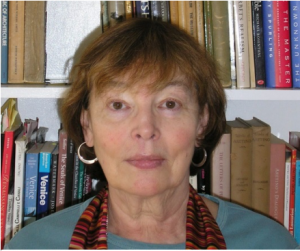Call for Papers: 2016 DWC Student Paper Awards
The Division on Women and Crime (DWC) of the American Society of Criminology invites submissions for the 2016 Student Paper Competition. The winners of this year’s competition will be recognized during the DWC meetings at the 2016 annual ASC conference. The graduate student winner will receive $500.00 and the undergraduate student winner will receive $250.00. For submissions with multiple authors, the award money will be divided among co-authors.
Deadline: Papers should be RECEIVED by the committee chairs by October 1, 2016.
Eligibility: Any undergraduate or graduate student who is currently enrolled or who has graduated within the previous semester is eligible. Note, any co-authors must also be students, that is, no faculty co-authors are permitted. To document eligibility, every author/co-author must submit proof of student status. This eligibility proof may be in the form of a letter from your department chair or an unofficial transcript.
Paper Specifications: Papers should be of professional quality and must be about, or related to, feminist scholarship, gender issues, or women as offenders, victims or criminal justice professionals. Papers must be no longer than 35 pages including all references, notes, and tables; utilize an acceptable referencing format such as APA; be type-written and double-spaced; and include an abstract of 100 words or less. Papers may not be published, accepted, or under review for publication at the time of submission.
Submission: Papers and proof of eligibility must be submitted to the committee chair by the stated deadline. Submitters must prepare the paper for blind review; all identifying information (name, affiliation, etc) should be removed from the paper itself and papers should then be converted to a PDF file. In the email subject line, students should include identifying information and indicate whether the submission is to be considered for the graduate or undergraduate competition.
Judging: Members of the paper competition committee will evaluate the papers based on the following categories: 1. Content is relevant to feminist scholarship; 2. Makes a contribution to the knowledge base; 3. Accurately identifies any limitations; 4. Analytical plan was well developed; 5. Clarity/organization of paper was well developed.
Notification: All entrants will be notified of the committee’s decision no later than October 31st. We strongly encourage winners to attend the conference to receive their award.
Committee Chairs: Jennifer Carlson, PhD & Dana Radatz, PhD
Email all paper submissions to:
Dana Radatz, PhD │Department of Criminology & Criminal Justice
Niagara University│dradatz@niagara.edu






